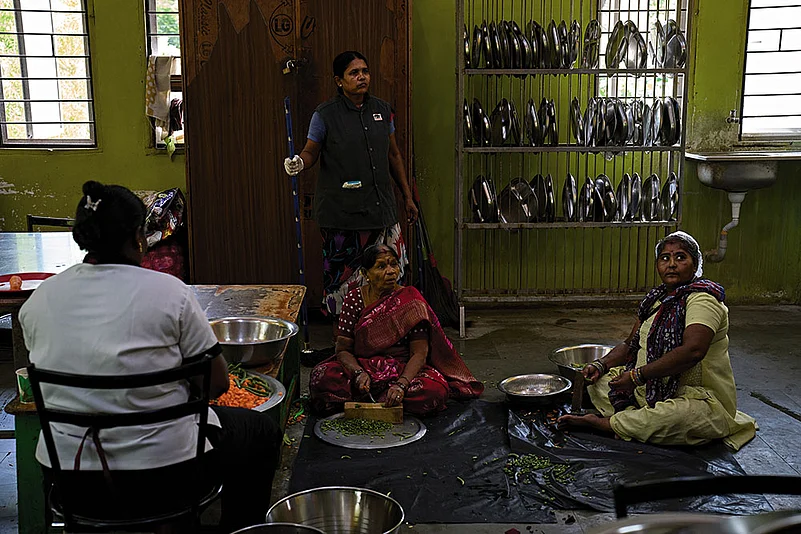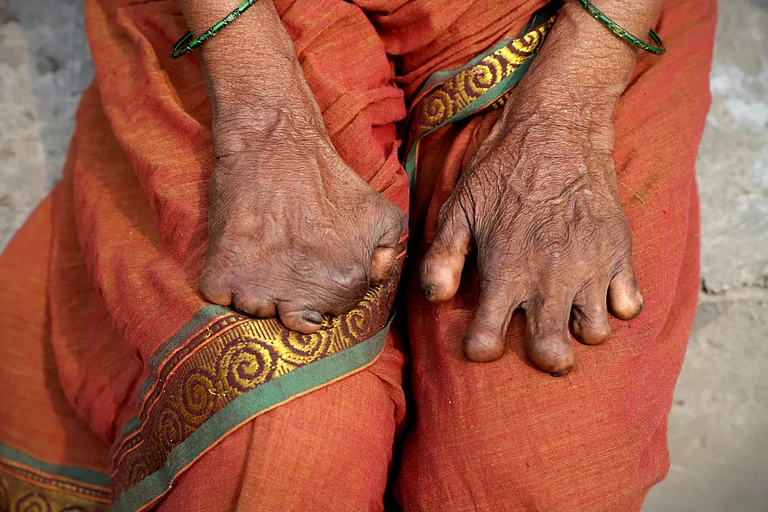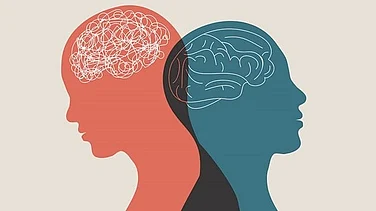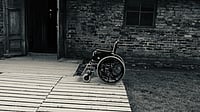“In a strange way we were free. We’d reached the end of the line. We had nothing more to lose. Our privacy, our liberty, our dignity: all of this was gone and we were stripped down to the bare bones of ourselves”
—Susanna Kaysen, Girl, Interrupted.
Chennai
From inside the gate of the facility, Angela (name changed) sang the song ‘Hotel California’ by The Eagles.
“You can check out any time you like, but you can never leave,” she whispered at the end, and laughed.
For many years now, Angela has lived at the Emergency Care and Recovery Centre (ECRC) of The Banyan in Chennai’s Mogappair and wanders around cracking jokes, laughing, singing and sometimes, fighting. But they know and she knows it too. She has nowhere to go.
Nobody to come fetch her. She is here and this is home. For around three decades, she has lived here and every morning, she gets up at 4 am to pray. She does the necessary things. Have tea, bathe, take medicines, work at the reception.
Her story is like an ellipsis continued. But it isn’t about the details. It is about the freedom from the shame that mental illness brings; the stigma of it all. At first, Angela didn’t want to tell her story. But later, she said she would like to tell it to us. For 25 years, Angela has been with The Banyan. At different centres. She was lost and found many times. Once in Thrissur, another time in Ooty and yet in another instance, in Pondicherry.
She sits straight, her bangs neatly parted. And she begins her story. A story where she is loved and wanted and then, hated and abused. She remembers being beaten up for having affairs in a boarding school. She ended up in a mental hospital. They would give them electric shocks. She was stripped naked.
“It was a lot of torture,” she says. “I know what it is to be a mental patient. But the past is in the past. God says, one day at a time.”
Angela is in her sixties, or perhaps in her fifties, but her face is like a map to an unknown place, which nobody, including her, knows how to decode.
She can be difficult. She can be light. There is a certain kind of dignity and courage in knowing that you had tried and you are still trying, in knowing that nobody’s coming for you, at least, not the ones you had hoped would. There is freedom in that knowledge. There is freedom in kicking shame and talking about the loss and abuse. It is okay now, they tell each other. They know there is always a place to return to.
Angela can remember songs. All the words. In the correct order. That’s memory. And a lot of it takes a lot of forgetting. Hers is a beautiful mind. And the fog that’s in there is not so thick. She remembers what she needs to.
The glitches in their memory turn a narrative into a fantasy land and moving through that with them is not making up things. It is seeing them as they do.
Memory can’t be verified in that sense. Facts don’t matter, except perhaps the diagnosis, but at some point, that begins to lose significance. A mental health facility is a difficult place. It is not always a sad place.
The women sit around the table to tell their stories. Their gaze is unflinching. They speak to the camera. No shame, no edits. And what is not said is also present. In the eyes, if you observe.
In the corridors, women hang around. Some of them work. Others just sit or walk around. It is their choice, their agency. For those who work here, they are grateful. Like Dr Archana Padmakar, who said she remembers when she was going through a hard time in her life, she shared her story with one of the women whom they call clients. She could. There was no judgement. That woman would pray for her every day. She didn’t tell Archana.
“That’s them,” she says.
It is not a perfect place. But it is an emotional place. A place of some freedom. A place they call home. The ones who have nowhere to go. That’s a lot of solace.
You’d hear a woman asking for breast implantation surgery because she feels she looks like a boy and another who thinks she is married to a celebrity and she needs to go with him, although, in reality, she had been rescued from a terrace where she and her mother had been living after they couldn’t afford to pay the rent. Elsewhere, a woman says she wants to go home. And in the little canteen, Mehboob Kani and Uma Devi, who live with mental illness, make their coffee and dosa as if this is a normal busy day despite the crying, the laughing, the demands and everything else. Within these walls, there are many stories. And each one is a book in itself. Homelessness, poverty, violence. Recurring themes. And yet, each one of them found their way here by chance and here they are, trying to get a second chance in life.
For the co-founder, Vandana Gopikumar, it is about friendships you form here. She and her friend, Vaishnavi Jayakumar, founded The Banyan 33 years ago in Chennai; a place where people facing mental illness and homelessness find dignity, friendship and a chance to begin anew.
On some days, she walks around the wards and sits with those whose stories only she knows. She speaks in gestures, in smiles, in tears. In embraces, too.
They recognise her. She is their person. The person who came for them. For her, it is an act of freedom to resist all prescribed things and find her own way in dealing with mental illness. With love. Because it comes slow and goes fast. She holds it and along with her “girls,” it is her place of refuge, a place she knows she can always come to when things go downhill.
“You have a home. Again,” she says.
There were voices down the corridor. But Angela’s voice is like that summoning bell.
Yes, here, ‘you can check out any time you like, but you can never leave’ (Eagles, ‘Hotel California’).
In its August 21 issue 'Everyday I Pray For Love' Outlook collaborated with The Banyan India to take a hard look at the community and care provided to those with mental health disorders in India. From the inmates in mental health facilities across India—Ranchi to Lucknow—to the mental health impact of conflict journalism, to the chronic stress caused by the caste system, our reporters and columnists shed light on and questioned the stigma weighing down the vulnerable communities where mental health disorders are prevalent. This profile is part of a narrative set of lived experiences the residents of The Banyan shared with Outlook’s editor Chinki Sinha. They were published in August 21 issue Everyday I Pray For Love as 'Girls, Uninterrupted.'


































